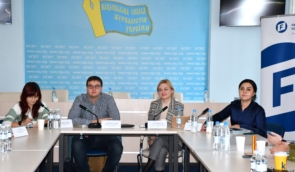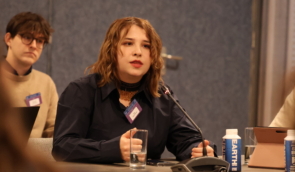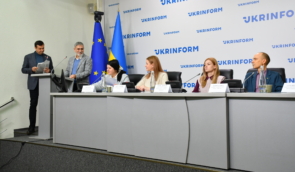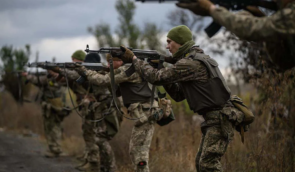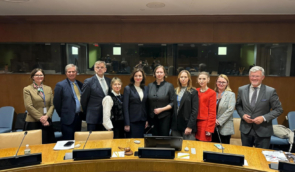In Vinnytsia, students were discussing the history of the Crimean Tatar people and their life under occupation
On February 26, to the Day of Resistance to Occupation of Crimea, the organisation “Ukrainian Students for Freedom” together with the Council of Student Self-Government of Vinnytsia National Medical University. N. I. Pirogov held the “Crimean Evening”. Human Rights Centre ZMINA was also invited to the event to talk about the struggle of the Crimean Tatar people.
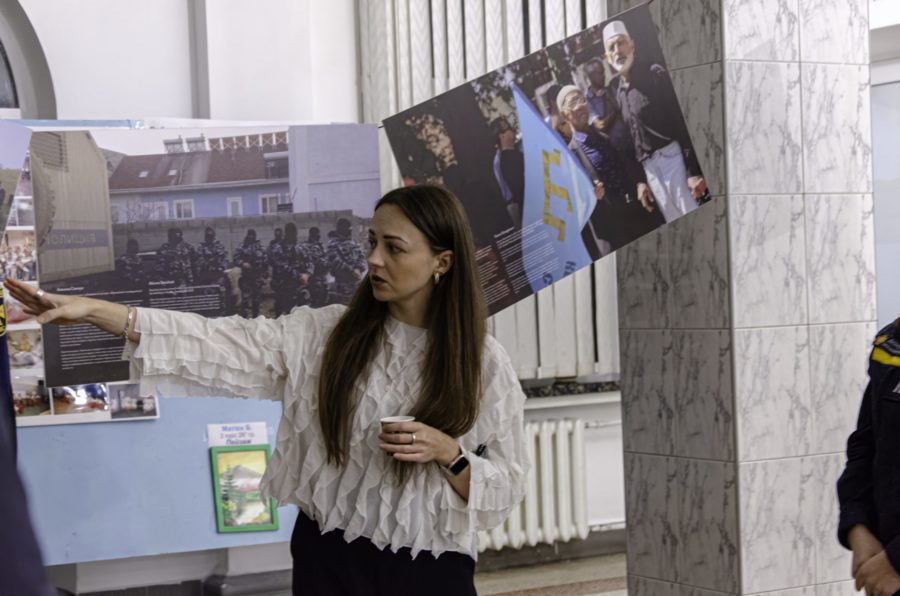 Viktoriia Nesterenko
Viktoriia NesterenkoDuring the event, they talked about the history of Crimean Tatars, language and culture, resistance and struggle for a free Crimea. Students also watched a documentary about the life of Crimean Tatars, who had to leave their native Crimea and look for a better life abroad.
In addition, Human Rights Centre ZMINA presented the photo exhibition “Stories from occupied Crimea” in the hall of the University by Ukrainian photojournalists Alina Smutko, Alona Savchuk and Taras Ibrahimov, who for several years recorded the life of the Crimean Tatars under occupation. Due to this, the authors were banned from entering the territory of the Crimean Peninsula and the Russian Federation for a period of 10 to 35 years.
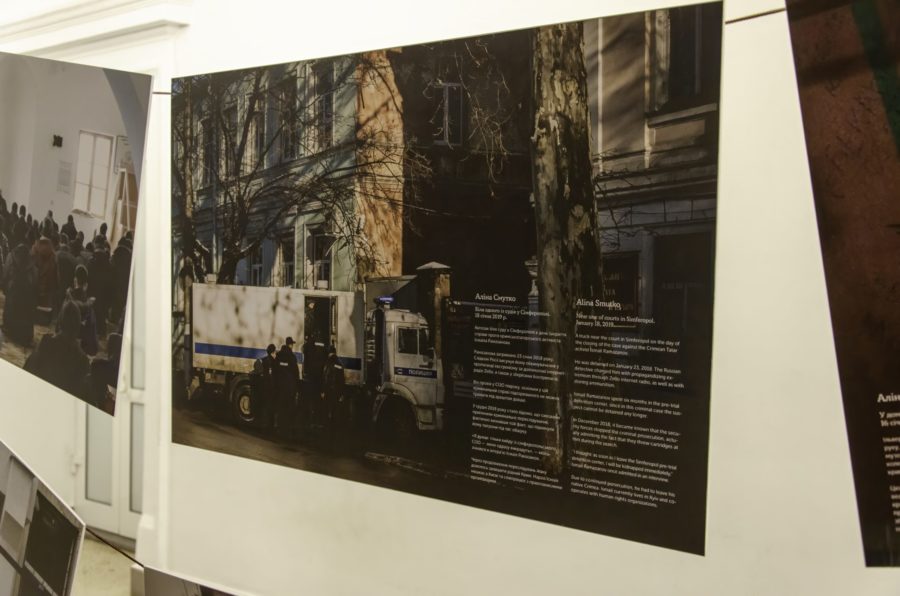
The authors of the exhibition are ZMINA and the Mission of the President of Ukraine in the Autonomous Republic of Crimea. Previously, the exhibition was presented in several cities of Ukraine and abroad.
Also, during the meeting with the students, ZMINA project manager Viktoriia Nesterenko held a campaign “Letters to a Free Crimea” to support political prisoners.
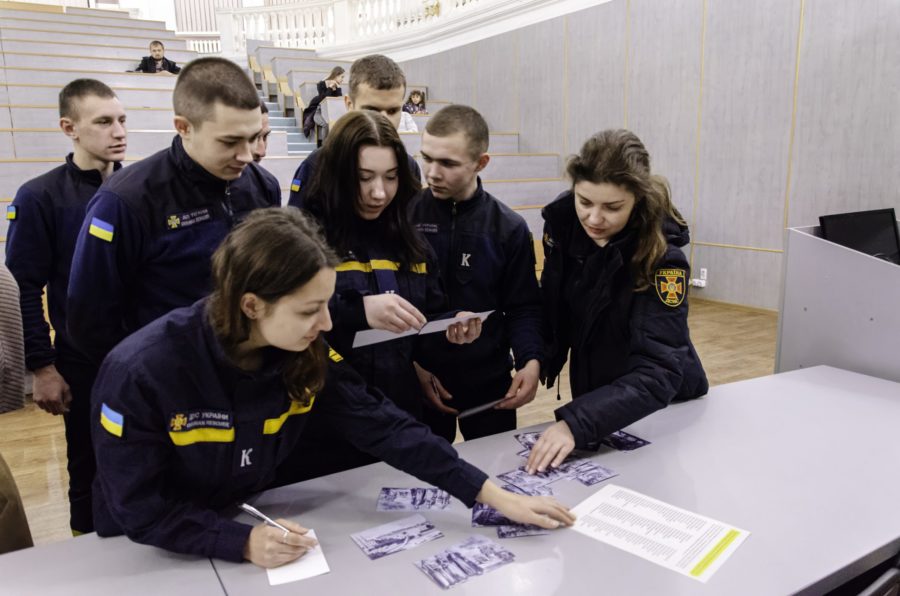
The “Letters to a Free Crimea” campaign encourages Ukrainians and residents of other countries to send letters of support to Crimean political prisoners illegally held by Russia. According to the Mission of the President of Ukraine in the Autonomous Republic of Crimea, as of February 19, 2024, Russia is holding 208 Crimean political prisoners, 125 of them are Crimean Tatars.
“The initiative to write letters to political prisoners arose many years ago and is a powerful tool for supporting our fellow citizens, who, unfortunately, are currently in prisons in occupied Crimea and on the territory of the Russian Federation”, Viktoriia Nesterenko said.
She added that prisoners often live in terrible conditions in prisons: torture, inhumane treatment, lack of medical care, solitary confinement, ban on communication with relatives:
“All these conditions are created so that a person feels oppressed and does not feel freedom either physically or morally. When they receive letters, they understand that society remembers them and waits at home”.
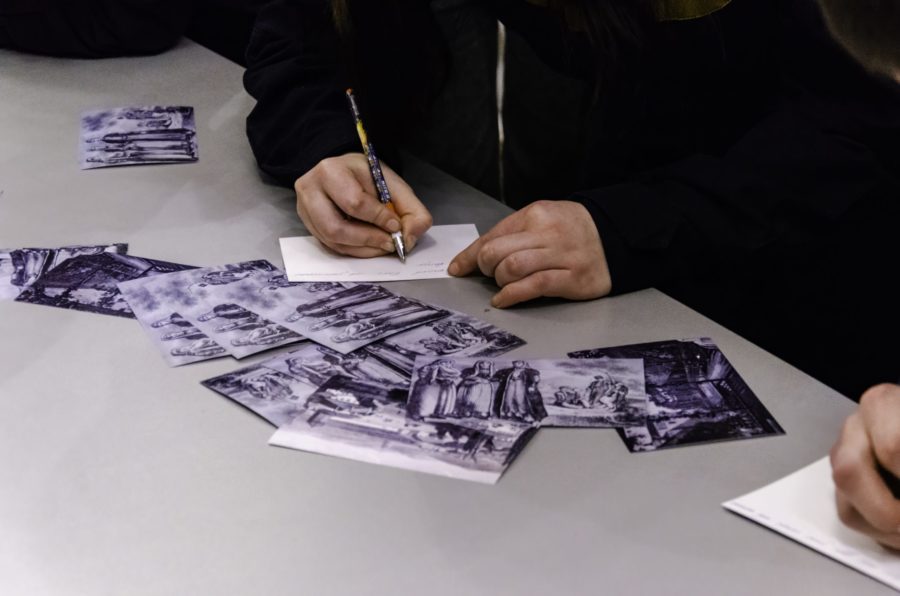 Photos provided by the organisation Ukrainian Students for Freedom
Photos provided by the organisation Ukrainian Students for FreedomYou can find Instructions for writing letters here. When writing the letter, please indicate who of the political prisoners you want to address it to. You can find the list of political prisoners and track their place of detention on the map here.
If you have found a spelling error, please, notify us by selecting that text and pressing Ctrl+Enter.

